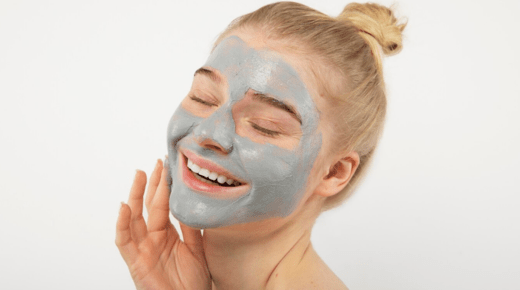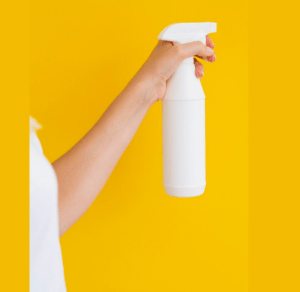
Clay masks are popular skincare products that many people use to address various skin concerns. Made from natural clay, these masks come in several types, each with unique properties. Understanding what clay masks are and how they function can help you determine if they are suitable for your skincare routine.
What Are Clay Masks?
Clay masks are composed of natural clays, such as bentonite, kaolin, and rhassoul. These clays have been used for centuries for their skin-enhancing properties. When applied to the skin, they can absorb excess oil, draw out impurities, and provide minerals beneficial for skin health.
Types of Clay Masks
There are several types of clay masks, each tailored to specific skin types and concerns:
- Bentonite Clay: Known for its ability to absorb oil and toxins, bentonite clay is ideal for oily and acne-prone skin.
- Kaolin Clay: A gentler option, kaolin clay works well for sensitive skin types and can help with mild exfoliation.
- Rhassoul Clay: Rich in minerals, rhassoul clay is excellent for improving skin texture and elasticity.
- French Green Clay: This type is beneficial for oily skin, as it can help with detoxification and reducing inflammation.
How Do Clay Masks Work?
Clay masks work through a combination of absorption and interaction with the skin. Here’s how they function:
1. Absorption of Oil and Impurities
One of the primary benefits of clay masks is their ability to absorb excess oil. Oily skin can lead to clogged pores and breakouts. When applied, clay masks draw out sebum and impurities, helping to keep the skin clean and clear.
2. Detoxification
Clay masks can also aid in detoxifying the skin. The minerals in clay bind to toxins and impurities, making it easier for the skin to release them. This process can help reduce the appearance of blemishes and improve overall skin tone.
3. Exfoliation
Some clay masks offer gentle exfoliation, which helps to remove dead skin cells. This can lead to a brighter complexion and a smoother skin texture. However, it’s important to choose a mask that matches your skin’s sensitivity to avoid irritation.
4. Mineral Enrichment
Clays are naturally rich in minerals like magnesium, calcium, and potassium. When applied to the skin, these minerals can promote healing and hydration. This makes clay masks suitable not only for cleansing but also for nourishing the skin.
Benefits of Using Clay Masks
Using clay masks regularly can offer several benefits:
1. Improved Skin Clarity
By removing excess oil and impurities, clay masks can help improve skin clarity and reduce the frequency of breakouts. This makes them an effective option for individuals with oily or acne-prone skin.
2. Smoother Skin Texture
The exfoliating properties of certain clay masks can contribute to smoother skin. Regular use may lead to a reduction in rough patches and an overall more refined appearance.
3. Enhanced Hydration
While clay masks are known for their oil-absorbing abilities, they can also provide hydration. The minerals in clay can help restore moisture levels, making your skin look healthier.
4. Soothing Effect
Clay masks can have a calming effect on the skin, reducing redness and irritation. This makes them suitable for those with sensitive skin conditions.
How to Use Clay Masks
To maximize the benefits of clay masks, it’s essential to use them correctly. Here’s a simple step-by-step guide:
1. Cleanse Your Skin
Start with clean skin. Use a gentle cleanser to remove makeup, dirt, and excess oil.
2. Apply the Mask
Using clean fingers or a brush, apply a thin, even layer of the clay mask to your face, avoiding the eye area.
3. Let It Sit
Allow the mask to sit for the recommended time, typically 10 to 15 minutes. Avoid letting the mask dry completely, as this can lead to skin tightness.
4. Rinse Off
Rinse your face with lukewarm water, gently removing the mask. Follow up with a moisturizer to restore hydration.
Frequency of Use
For most skin types, using a clay mask once a week is sufficient. However, those with oily or acne-prone skin may benefit from using it up to twice a week. Always monitor your skin’s response and adjust accordingly.
Choosing the Right Clay Mask
When selecting a clay mask, consider your skin type and specific concerns. Here are a few tips:
- For Oily Skin: Look for bentonite or French green clay masks.
- For Sensitive Skin: Opt for gentler options like kaolin clay.
- For Dry Skin: Choose masks with added moisturizing ingredients, like honey or aloe vera.
Conclusion
Clay masks are versatile skincare products that can enhance your skincare routine. By understanding what they are and how they work, you can choose the right mask for your needs. With regular use, clay masks can help improve skin clarity, texture, and overall health. Whether you’re dealing with oily skin, breakouts, or simply looking to refresh your complexion, clay masks can be a valuable addition to your skincare arsenal.






